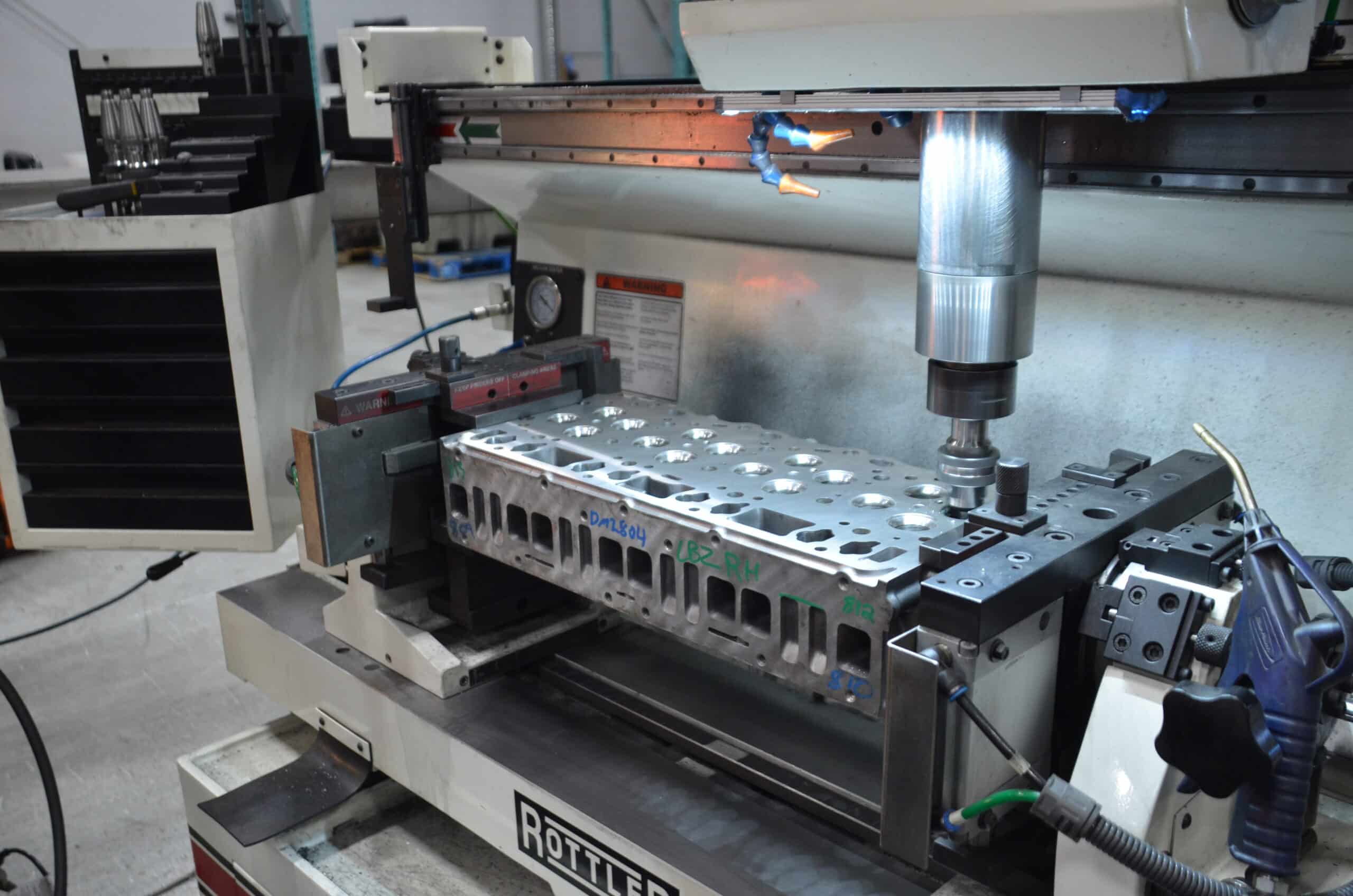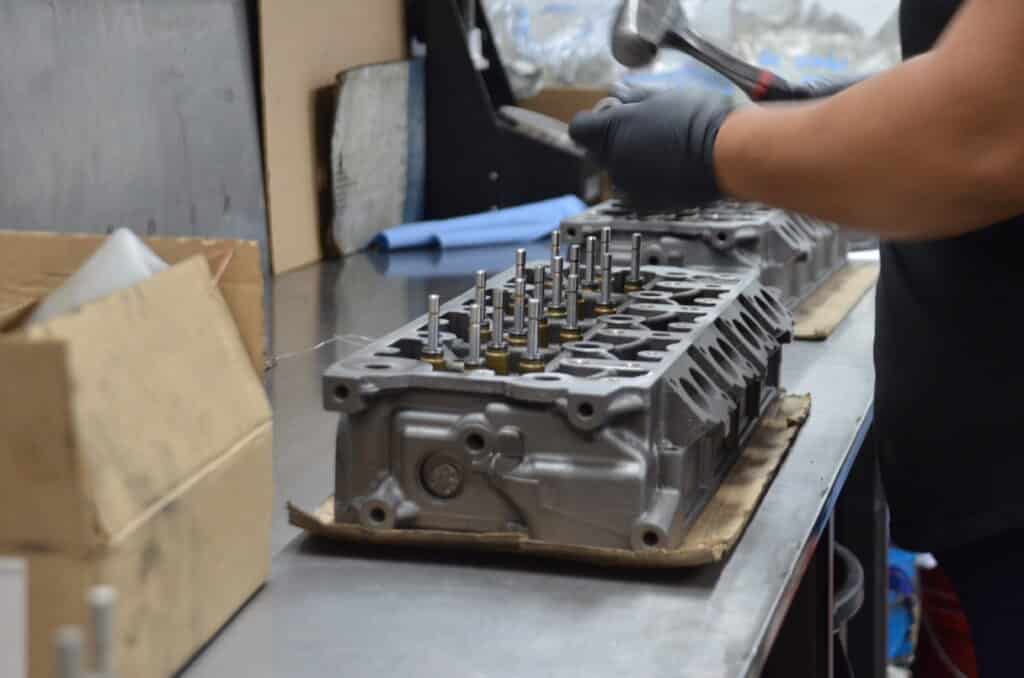
How Many Miles Will a Reman Diesel Engine Last?
February 1, 2024What’s holding you back from purchasing a remanufactured engine? Whether you’re worried that the engine will fail after a few months or concerned about it’s reliability, you’ve come to the right place. In this blog, we’ll take a deep dive into factors that influence a reman engine’s lifespan, the average mileage you can expect, and the importance of following the break-in period.
How many miles should you get out of a reman diesel engine?
Remanufactured diesel engines are built to the same, if not higher, quality than a new diesel engine. With proper care, maintenance, and a break-in period, the average miles of a reman diesel engine is anywhere from 200,000 to 400,000 miles (320,000 – 640,000 km). But remember: your engine experience may be different than the average as your driving habits, haul load, and stop-and-go frequency will affect how long your engine will last. To learn more about the life expectancy of a 6.7 Powerstroke reman engine, check out our last blog post.
4 Reasons Why Diesel Engines Last Longer
- Engine Design: Unlike gasoline engines, diesel engines are larger, allowing for more oil clearance with larger bearing sizes, crankshafts, and cylinder heads. Without a timing belt installed, this also means less wear on the gears and increased cooling capacity.
- Fuel type: Diesel fuel is designed to be less volatile and lighter than gasoline. The lighter consistency allows it to lubricate the engine components as it flows into the cylinder and only ignites under pressure compared to lighting with a spark.
- Lower RPM: Diesel engines operate at lower RPM (revolutions per minute) than gasoline engines. Lower RPM means less wear and tear on the engine components over time, contributing to increased longevity.
- Longer Strokes: Diesel engines often have a longer stroke – the distance the piston travels inside the cylinder than gasoline engines. This design increases torque and improves efficiency, enhancing the engine’s durability.
Does a remanufactured engine have 0 miles?
While looks can be deceiving, a remanufactured engine technically does not have zero miles after it is remanufactured. Parts that have been inspected and passed the OEM specifications will still have wear and tear from previous miles. Additionally, changing your engine will not reset the mileage on your vehicle, as an engine swap does not impact the odometer.
Are Reman engines reliable?
As a refresher, remanufactured engines undergo disassembly, cleaning, repairing or replacing for worn-out parts to exceed engine specs and testing after assembly. Designed for durability and reliability, reman engines are built with exceptional quality and offer a sustainable option for your vehicle. Components like pistons, cylinders, camshafts, crankshafts, bearings, and valves are often replaced to ensure you receive the best-remanufactured engine for your price point.
What is the Break-in Period of a Reman Engine?
Despite the temptation to see what your engine can do out of the gate, your reman engine needs time to adjust. The recommended break-in period of your remanufactured diesel engine is 500 – 1000 miles (800 – 1600 km), but your manufacturer’s engine guidelines will have a specific break-in period outlined for your engine. Giving your engine time to break in helps to:
- Establish a wear pattern for the components
- Ensures lubrication for all necessary parts
- Support the longevity of your engine
- Minimize the risk of early engine wear and tear
6 Tips for Breaking In A Remanufactured Diesel Engine
- Slow starts: Begin by idling for a few minutes to ensure proper oil circulation, and carefully observe for leaks or unusual noises that may indicate issues.
- Vary RPM: Gradually increase engine speed, but avoid excessive revving or heavy acceleration to promote a smoother break-in process.
- Avoid sustained high RPM: During the first 1000 miles or 1600 km, keep the engine under 4000 RPM to prevent excessive stress on components.
- Minimize heavy loads: Avoid carrying heavy loads during the break-in period to reduce strain on engine parts.
- Monitor fluids: Regularly check oil and coolant levels and monitor the temperature gauge to ensure it stays within the recommended range for optimal engine health.
- Schedule regular maintenance: It’s crucial to adhere to a routine maintenance schedule during and after the break-in period to keep the engine in top condition.
What Happens If Don’t Break In a Diesel Engine?
Skipping the break-in period in a remanufactured diesel engine can result in lower performance, lower fuel efficiency, and shortening your engine’s lifespan. Without a proper break-in, you can run the risk of small metal particles circulating in the oil, resulting in unexpected damage and increased friction. Breaking in your engine is crucial for proper gasket sealing to prevent leaks.
Are you looking for the best remanufactured diesel engine for your vehicle? Our team of engine remanufacturers at DFC Diesel is here to help you find the best engine for your needs. Contact us today for a quote, or find a dealer near you to purchase an engine!



